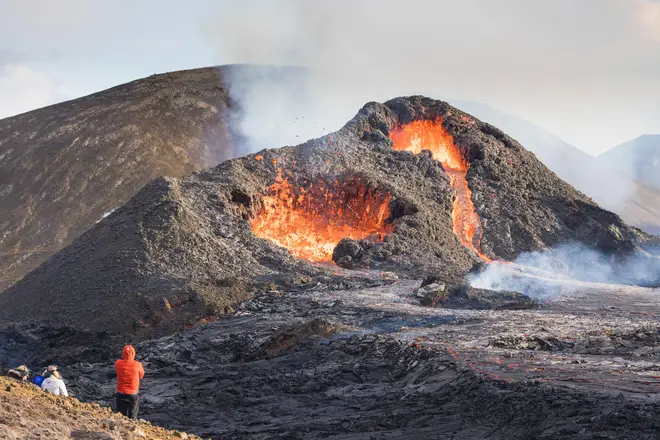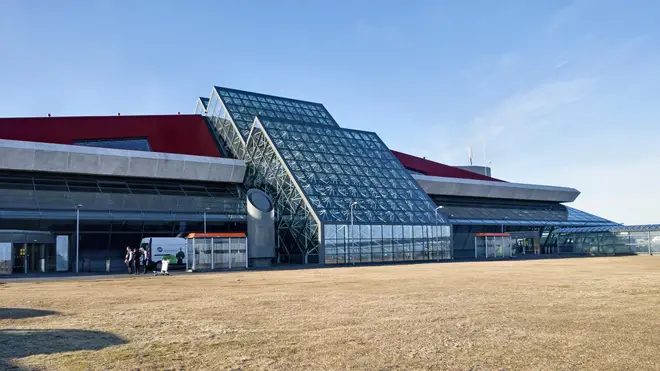
Nick Ferrari 7am - 10am
3 August 2022, 17:14 | Updated: 3 August 2022, 17:33

A volcano close to Iceland's main airport in the south-west of the country has begun erupting, the country's meteorological authorities said.
The Icelandic Meteorological Office said the eruption is near the Fagradalsfjall mountain, 20 miles south-west of the capital Reykjavik.
A live video feed from the site showed magma spewing from a narrow fissure about 100 to 200 metres long, over a field of lava from last year's eruption, the first on the Reykjanes Peninsula in almost 800 years.
Read more: Taiwan scrambles military jets after 27 Chinese warplanes enter air defence zone
Read more: Cost of living crisis: Britain warned 15% inflation 'plausible' scenario next year
Scientists had anticipated an eruption somewhere on the peninsula after a series of earthquakes over the past week indicated volcanic activity close to the crust.
An eruption in the same area last year produced spectacular lava flows for several months.
Volcanologist Magnus Tumi Gudmundsson told the Associated Press that the eruption appeared to be small.
"But we don't know where in the process things are at," he said as he boarded a helicopter for a first look.

Live Fagradalsfjall, Iceland.
Iceland, located above a volcanic hotspot in the North Atlantic, averages an eruption every four to five years.
The most disruptive in recent times was the 2010 eruption of the Eyjafjallajokull volcano, which sent clouds of ash and dust into the atmosphere, interrupting air travel for days between Europe and North America because of concerns the ash could damage jet engines.
More than 100,000 flights were grounded, stranding millions of passengers.

The Icelandic Meteorological Office urged people not to go near the volcano, which sits in an uninhabited valley.
Its last eruption ended just eight months ago.
The airport currently remains open and no flights are disrupted.
Shares in Iceland's flagship airline, Icelandair, rose 6 per cent when news of the eruption broke on Wednesday.
Investors and residents alike had been spooked by the possibility of a much more disruptive eruption in a populated area of the peninsula.